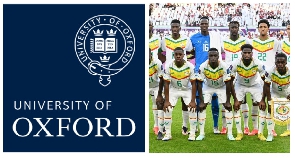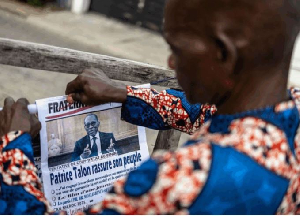No African nation will advance from the group stage; this was according to a research from the Maths Department at the Oxford University, one which appears to have failed so far. In group A of the 2022 FIFA World Cup in Qatar, Senegal, an African nation, advanced to the round of 16.
The African Champions, Senegal have become the first African country to book their place in the knockout stage of the ongoing 2022 FIFA World Cup in Qatar.
Senegal picked one of the tickets for the knockout stage after beating the South Americans
‘Ecuador’ 2-0.
The Terenga Lions qualify for the next stage after beating Ecuador in their final group game at the Khalifa International Stadium on Tuesday, November 29, 2022.
A research report published by Oxford University predicted that no African team at the World Cup will progress beyond the group stages.
The report based on the Oxford mathematical model predicts the route to the men's FIFA World Cup which kicked off on the 20th November 2022 in Qatar.
It also predicts that the final of the tournament will be between Brazil and Belgium with the South Americans expected to prevail.
Meanwhile, Africa's representatives at the World Cup currently include Ghana, Cameroon, Tunisia, Senegal and Morocco.
On the other hand, Ghana, Morroco, Tunisia and Cameroon are yet to decide their fate in the next stage from the group stage.
The model - created by Oxford Mathematics researcher Joshua Bull - forecasts among others:
Wales to go out in the group stages
England to lose in the quarter-final
Argentina vs Brazil in the semi-final
Brazil to beat Belgium in the final
"The model simulated the group stages one million times and took the most common outcomes. The algorithm then simulated each knockout game 100,000 times," part of the University's post on social media read.
AM/WA
Sports News of Wednesday, 30 November 2022
Source: www.ghanaweb.com













